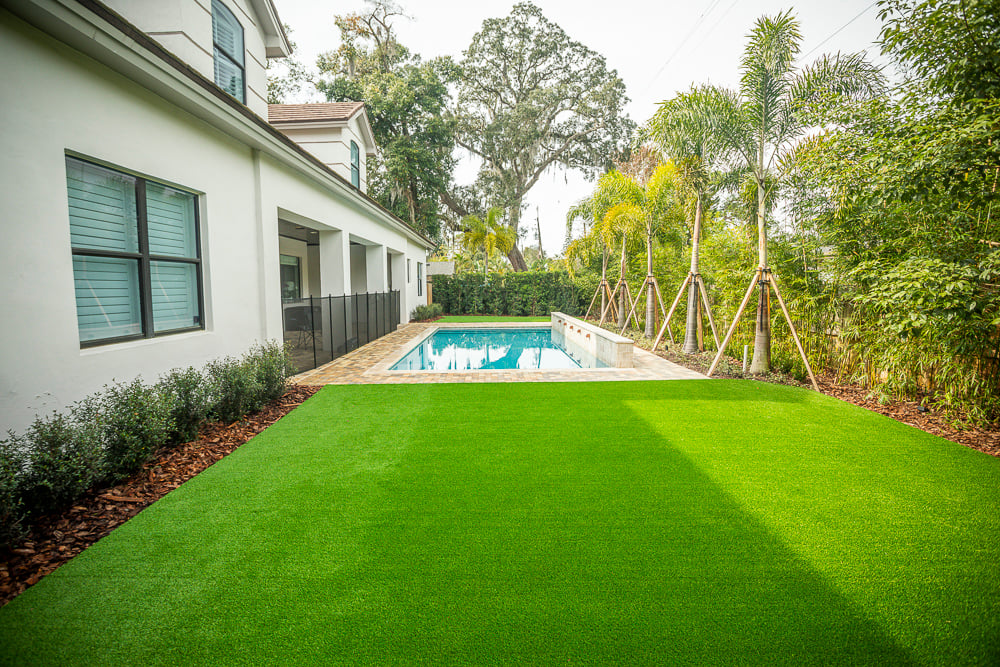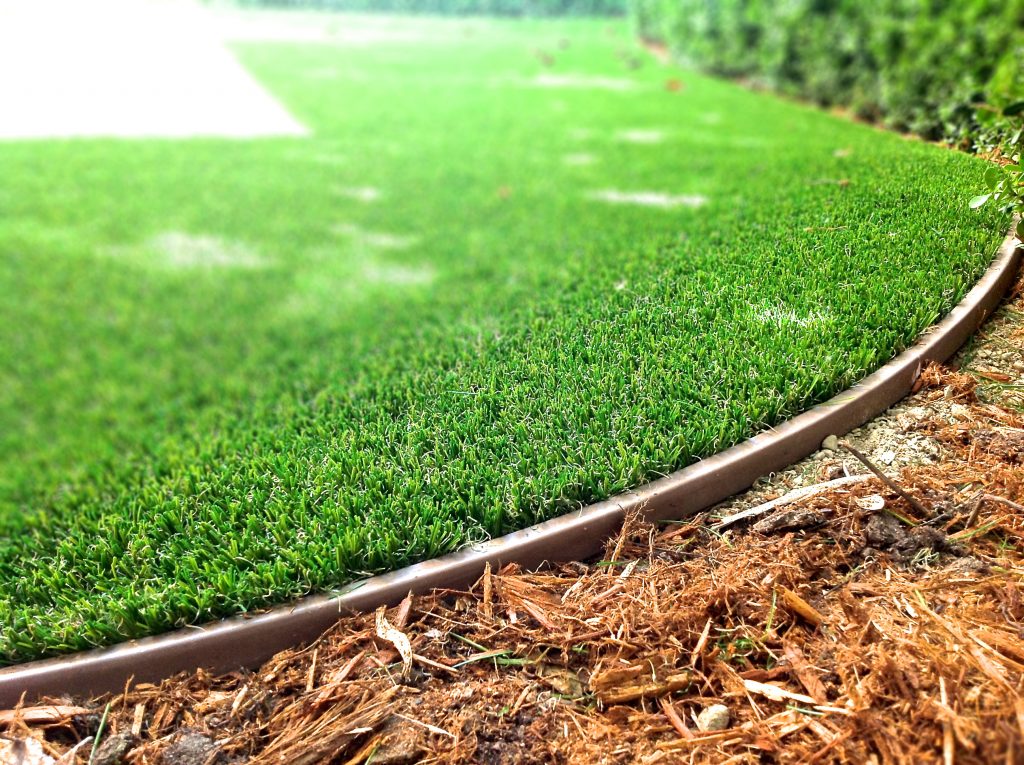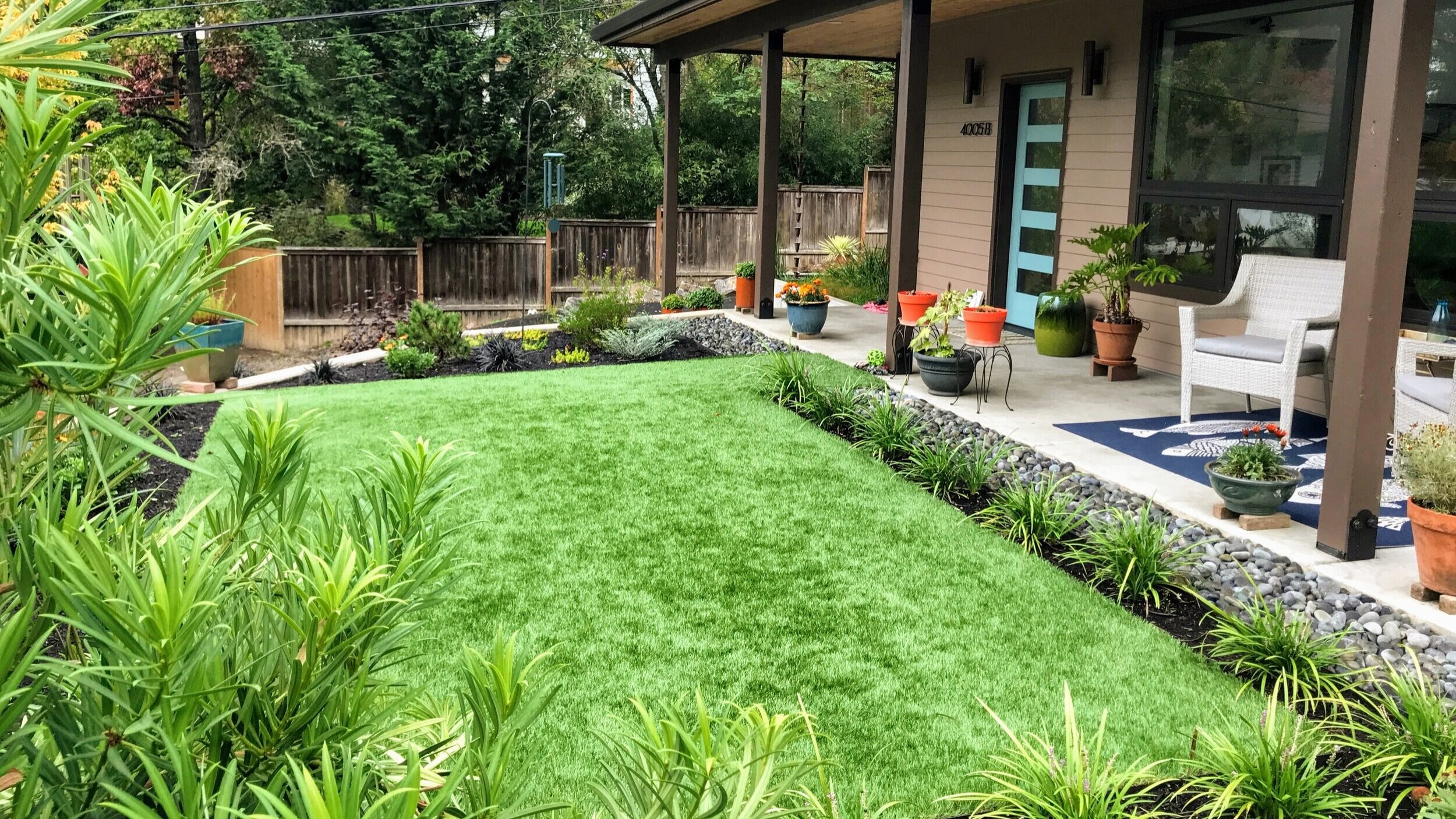Durable Arizona Artificial Turf for Home and Business Applications
Durable Arizona Artificial Turf for Home and Business Applications
Blog Article
Delve Into the Environmental Benefits of Opting for Artificial Turf Solutions
The adoption of synthetic grass options provides a compelling opportunity to resolve pressing environmental challenges. By considerably reducing water usage and decreasing the application of dangerous chemicals, these options not only advertise sustainable landscape design yet also secure regional ecosystems. Furthermore, the lower carbon footprint related to lowered upkeep activities contributes to an extra sustainable strategy to land monitoring. The ramifications of these benefits extend past mere preservation initiatives, raising questions regarding their lasting effect on environment conservation and total eco-friendly equilibrium. Checking out these dimensions reveals a complex interaction worth considering.
Water Preservation Perks
Among one of the most significant benefits of fabricated turf is its capacity to save water. Typical turf yards need considerable irrigation, particularly in areas prone to dry spell or water limitations. On the other hand, synthetic grass does not require watering, dramatically reducing the overall need for water sources. This function is particularly advantageous in deserts where water scarcity is a pressing worry.
By getting rid of the demand for normal watering, synthetic grass adds to sustainable landscape techniques and helps minimize the ecological influence of excessive water usage. In addition, the preservation of water encompasses the reduction of runoff, which can cause dirt erosion and waterway air pollution.
Furthermore, the setup of artificial grass permits communities and homeowners to allocate water resources much more successfully, focusing on essential uses such as drinking water and farming. The shift in the direction of man-made lawn not only advertises accountable water use however likewise straightens with wider ecological objectives focused on preserving natural resources.
As communities progressively focus on sustainability, the water preservation benefits of synthetic grass offer an engaging situation for its fostering in industrial and property landscape design tasks.
Decreased Chemical Usage
The transition to synthetic grass substantially decreases the reliance on chemical therapies generally used in natural lawn upkeep. Traditional turf administration commonly includes the application of plant foods, pesticides, and herbicides to promote growth and control pests. These chemicals can present dangers to human health and wellness, neighborhood wild animals, and the environment, contributing to soil and water contamination.
On the other hand, synthetic grass removes the need for these hazardous compounds. When set up, it needs marginal maintenance, largely including routine cleaning and irregular infill replenishment. This decrease in chemical use not only profits the prompt setting but likewise adds to broader ecological stability. By minimizing the launch of synthetic substances right into the ecological community, synthetic grass promotes healthier dirt and water supply.
In addition, the lack of chemical drainage connected with man-made grass setups helps safeguard local waterways from contamination, sustaining marine life and preserving biodiversity. Arizona artificial turf. As communities progressively focus on lasting techniques, selecting man-made lawn provides a feasible service that lines up with ecological preservation goals. Via this shift, homeowner can delight in lavish green rooms without endangering eco-friendly health, paving the method for a more lasting future
Reduced Carbon Footprint

Furthermore, the setup of man-made turf can result in considerable water preservation. All-natural lawns require significant amounts of try this web-site water for watering, which not only contributes to the carbon footprint connected with water extraction and treatment but additionally strains local water resources. In contrast, synthetic grass needs very little maintenance, requiring no watering, consequently dramatically decreasing water use and its associated power expenses.
In addition, the long life of synthetic lawn contributes to its reduced carbon effect. With a life-span of as much as 15 years or more, the need for regular substitutes is reduced, causing less waste and lower energy consumption in manufacturing and getting rid of standard yard options. Overall, synthetic grass presents a sustainable choice for eco aware landscape design.
Environment Preservation
Environment conservation is a vital factor to consider in the dispute over landscape design selections, specifically when comparing synthetic lawn to natural turf. Natural grass yards usually require considerable upkeep, consisting of using plant foods, herbicides, and chemicals, which can detrimentally influence regional ecological communities. These chemicals can seep into the soil and waterways, hurting indigenous vegetation and animals and disrupting regional habitats.
Fabricated turf eliminates the requirement for damaging chemicals, thereby protecting close-by wild animals and maintaining the stability of bordering communities. The installation of synthetic turf can lead to the conversion of previous turf areas into more biodiverse landscapes, such as pollinator gardens or indigenous plant areas, which can support neighborhood wildlife.
Ultimately, the change to fabricated lawn not just saves water and lowers upkeep initiatives but likewise cultivates a much more unified relationship in between human tasks and the native environment, advertising habitat conservation while doing so.
Long-Term Sustainability
Long-term sustainability is a vital consider reviewing the advantages of synthetic grass over standard turf lawns. Among one of the most significant benefits of synthetic grass is its durability; it can last approximately 15-20 years with minimal maintenance, whereas all-natural grass requires frequent reseeding and substitute. This longevity lowers the requirement for consistent sources, such as water, fertilizers, and pesticides, which are important for maintaining a healthy yard yard.
Furthermore, man-made lawn adds to a decrease in carbon exhausts related to yard treatment equipment. Typical yards her explanation typically require gas-powered lawn mowers, leaners, and blowers, every one of which add to air contamination. Artificial turf companies phoenix. On the other hand, fabricated grass eliminates the requirement for such tools, promoting a cleaner environment
Moreover, the manufacturing of synthetic lawn significantly utilizes recycled products, improving its sustainability account. As producers adopt environmentally friendly techniques, the ecological footprint of synthetic grass continues to decrease.

Final Thought
The fostering of fabricated grass solutions Find Out More presents considerable environmental advantages, including considerable water conservation, decreased reliance on dangerous chemicals, and a lower carbon impact. Furthermore, synthetic grass aids in protecting natural environments by lessening land disruption and promoting lasting sustainability through using sturdy materials. Collectively, these aspects emphasize the potential of synthetic lawn to contribute favorably to ecological wellness and provide a sensible alternative to standard landscaping practices in a significantly resource-conscious world.
In comparison, fabricated grass does not require watering, significantly minimizing the general demand for water sources. By lessening the release of synthetic compounds right into the ecosystem, synthetic grass advertises healthier soil and water systems.
Moreover, the installment of fabricated grass can result in significant water conservation. In contrast, fabricated lawn needs minimal upkeep, needing no watering, thus dramatically lowering water use and its linked power expenses.

Report this page